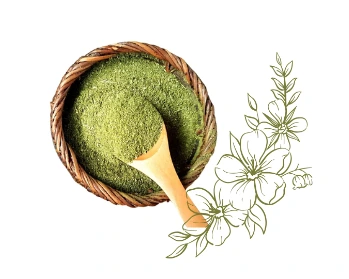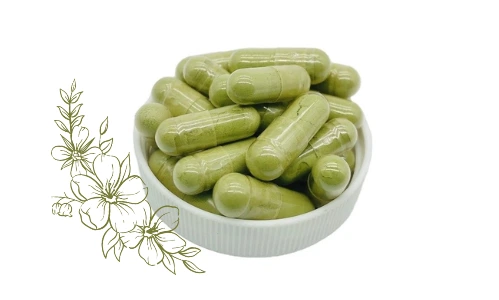Moringa, often called the "miracle tree" or "tree of life," has gained a lot of attention for its incredible health benefits. But what exactly makes this plant so special? And how can it be used safely and effectively in daily life?

Moringa, scientifically known as moringa oleifera, is a fast-growing tree native to the Himalayan region. It's been used for centuries in traditional medicine and is now gaining popularity worldwide due to its impressive nutritional content and potential health benefits. Every part of the plant — from the leaves to the seeds — is edible and packed with essential nutrients that can support overall well-being.
Here's something interesting: Moringa powder is reportedly a staple in the daily routine of Victoria's Secret Angels. Many retired models have shared their secret beauty tips, and moringa was one of them. Adding a pinch of moringa powder to your tea or smoothie can boost your intake of vitamins, minerals, and antioxidants, helping you feel more energized and healthy from the inside out.
What Does Moringa Contain?
As mentioned before, moringa is loaded with nutrients. Here’s a closer look at what makes it so beneficial:
-
Vitamins: Moringa is rich in vitamins A, C, and E, which are powerful antioxidants that support immune function and skin health.
-
Minerals: It contains iron, calcium, and potassium, which are important for bone strength, blood pressure regulation, and muscle function.
-
Proteins: Moringa leaves provide all nine essential amino acids, making it a rare plant-based source of complete protein.
-
Antioxidants: The plant is also high in antioxidants, which help fight free radicals and reduce inflammation in the body.
Things to Keep in Mind When Using Moringa
While moringa offers many health benefits, it's important to use it wisely. Here are some key considerations:
-
Possible Side Effects: Although generally safe, large doses may cause digestive discomfort like bloating, diarrhea, or stomach cramps. Start with small amounts and gradually increase to see how your body reacts.
-
Pregnancy and Breastfeeding: Consult a healthcare professional before using moringa if you're pregnant or nursing, as it may affect hormone levels or milk production.
-
Interactions with Medications: Moringa may interact with certain drugs, especially blood thinners. Always speak to your doctor if you're on medication.
-
Dosage: Follow the recommended dosage on the product label. Overconsumption can lead to unwanted effects.
-
Quality Matters: Choose high-quality moringa from trusted sources to ensure purity and effectiveness.
When taken in the right amount, moringa is considered safe and can even be used long-term. It's a natural way to support your health without major side effects.
How to Use Moringa
Moringa comes in various forms, making it easy to incorporate into your daily routine. Here are the most common options:
Moringa Powder
Moringa powder is made from dried leaves and is the most popular form for daily use. It can be easily mixed into smoothies, teas, yogurt, or even baked goods like pancakes and muffins. Its earthy flavor blends well with other ingredients. A typical serving is around 1-2 teaspoons per day, but always check the package instructions. Start with a smaller amount to test your tolerance.

Moringa Capsules
If you prefer a hassle-free option, moringa capsules are a great choice. They contain concentrated moringa powder and are easy to take with water. This form is ideal for those who want a consistent dose without worrying about measuring or mixing.

Frozen Hairtail,Frozen Hairtail Whole Round,Frozen Fish Hairtail ,Frozen Fish Section
Zhejiang Industrial Group Co., Ltd. , https://www.xingyeseafood.com